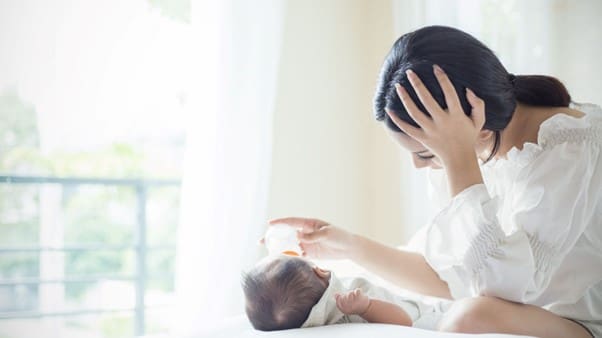The aim of Maternal Mental Health Awareness Week is to raise awareness about mental illness among pregnant women and mothers-to-be. The Perinatal Mental Health Partnership is committed to directing mothers and families to available resources, with a particular emphasis on ensuring that individuals who are affected by maternal mental health can get the care they need to recover.
A small group of 11 people, including women with lived experience, got together in 2014 with the goal of developing a campaign to raise awareness of maternal mental health. The Perinatal Mental Health Partnership (PMHP), which they founded, hosted the first-ever UK Maternal Mental Health Matters Awareness Week in 2017, coinciding with the week that World Maternal Mental Health Day was observed.
The Motherhood Group, Prosperity’s, and Roshni 2 Project are three new additions.
What is this year’s theme?
The topic for this year’s Awareness Week is “Together In A Changing World,” which focuses on bringing communities together, providing online and in-person support, and working together for all families through what is often a trying time.
The Perinatal Mental Health Partnership is committed to providing support to all parents and families and places special emphasis on promoting the rights of individuals who are affected by perinatal mental health so that families can get the knowledge and assistance they need to facilitate recovery.
The purpose of Maternal Mental Health Awareness Week is to create a platform for comforting families and directing them to helpful resources and secure assistance, which is what individuals most need right now.
When so many parents’ anxieties are high, efforts will be concentrated on making sure they feel well informed and supported. All the resources developed and offered during the week will also be made available afterward for people to use as needed.
Mental Health before, during and after Pregnancy
Although it’s normal to have periods of worry and stress when you’re pregnant, some women have feelings that don’t go away and this can be a sign of something more serious.
Maternal and perinatal are frequently used synonymously. The Latin words “peri” and “natal” mean “around” and “birth,” respectively. Therefore, perinatal mental health is the state of a person’s mind during pregnancy and the initial postpartum years.
This covers pre-existing mental diseases, as well as illnesses that emerge for the first time or are significantly worsened during pregnancy.
Antenatal and/or postnatal depression, anxiety, obsessive compulsive disorder, postpartum psychosis, and post-traumatic stress disorder (PTSD) are a few examples of perinatal mental health issues. These diseases can range in severity from mild to moderate to severe, necessitating various forms of care or therapy.
- 1. Around 1 in 5 women will experience mental health problems during or after pregnancy
- 2. 70% will hide or underplay the severity of their illness
- 3. Suicide is the leading cause of direct maternal death within a year of having a baby
A ‘perinatal’ mental health issue is one that you can have at any point during your pregnancy or for up to a year following childbirth.
Becoming a parent is a major life event. A variety of emotions are normal to feel both throughout pregnancy and after giving birth. However, if any challenging emotions start to significantly impact your daily life, you may be dealing with a perinatal mental health issue.
This could be a brand-new mental health issue or a recurrence of an old one.
Some women also experience eating problems during and after pregnancy. Pregnancy charity Tommy’s has specific information about eating disorders in pregnancy https://www.tommys.org/pregnancy-information/im-pregnant/mental-wellbeing/eating-disorders
Managing existing mental health problems during pregnancy
It’s a good idea to speak with your doctor as soon as you can if you become pregnant while struggling with a mental health issue. If you intend to get pregnant in the future, you can also talk to your doctor about your mental health.
You can maintain your mental health during pregnancy with the help of your doctor’s planning assistance. They can also aid you in considering whether you might require additional support.
There is a higher chance that you will become ill again if you have had a mental health issue during or after giving birth. However, this does not guarantee that you will.
You might be concerned about having another child if you experienced health issues during your prior pregnancy. However, you might feel more assured in your ability to take care of yourself. Additionally, you might be able to recognise any early warning signs of illness.
It’s crucial to discuss how to maintain your mental health with your doctor if you do become pregnant once more. Consider what kind of assistance you might require as well.
Support and Services
There are several voluntary organisations and charities who offer a range of support to families and new parents:
- Family Lives offers confidential support, information, and advice for parents.
- Home Start offers a service which pairs you with a volunteer who visits you to offer practical and emotional support.
- Family Action offers specialist support services for parents with a mental health problem. This includes services during pregnancy and after giving birth.
- NCT runs a range of courses for new parents and has a membership that runs activities and social groups.
- The Association for Postnatal Illness (APNI) offers information and support about postnatal depression. This includes information for partners and carers.
- The Breastfeeding Network offers nationwide support about breastfeeding.
You can also get help from;
- Your GP
- Antenatal care (with your midwife or obstetrician)
- Your health visitor
If you would like to talk to us about Mental Health training, please call us on 01276 586943 or email us at admin@crosscountiestraining.co.uk.
